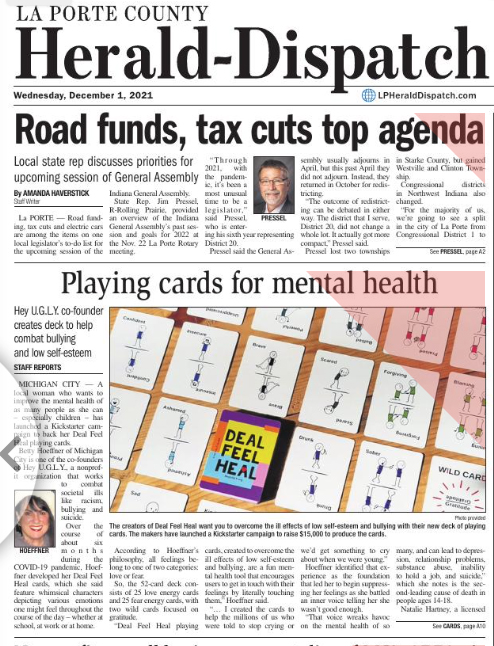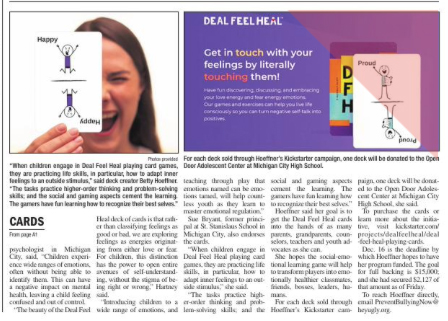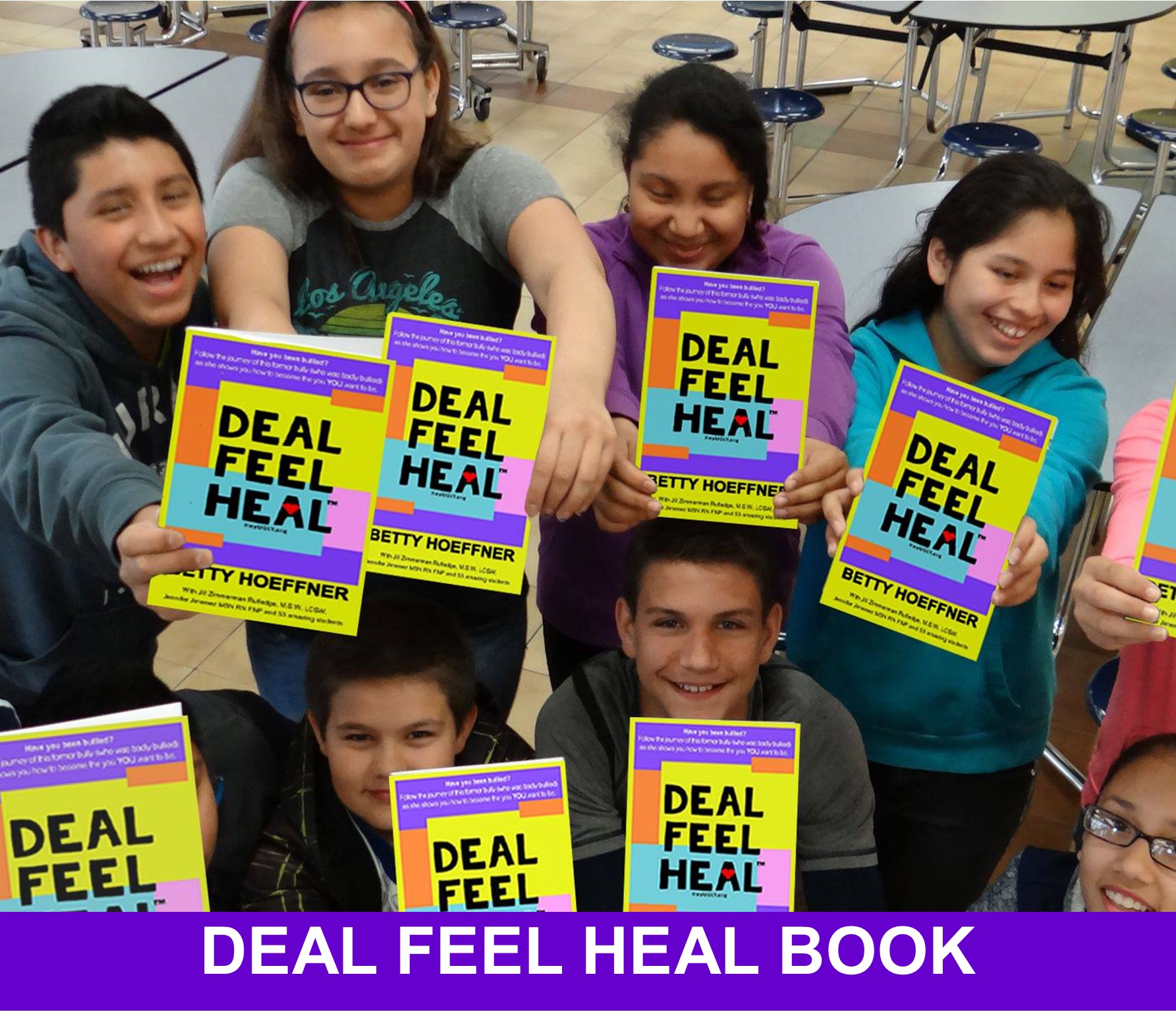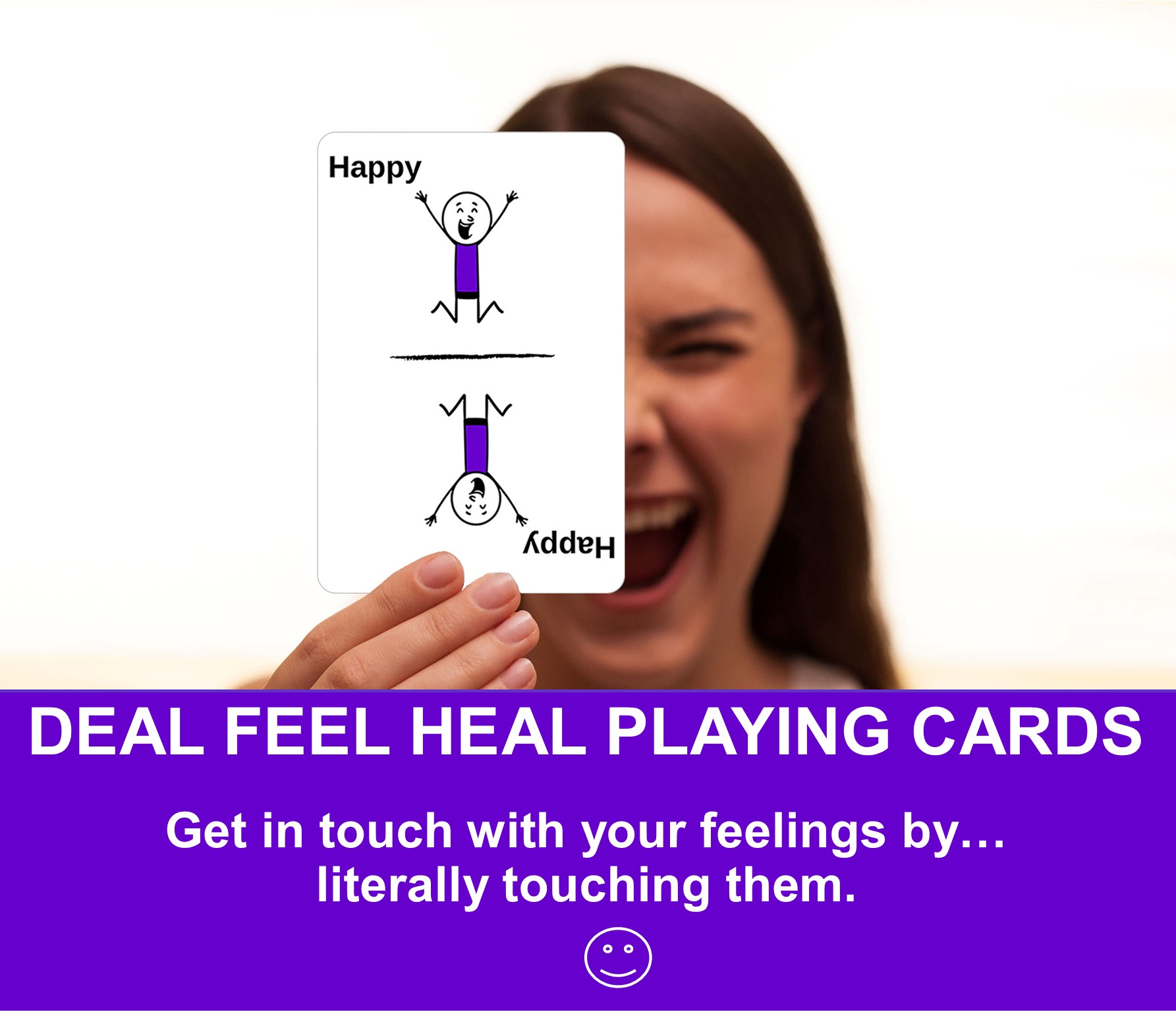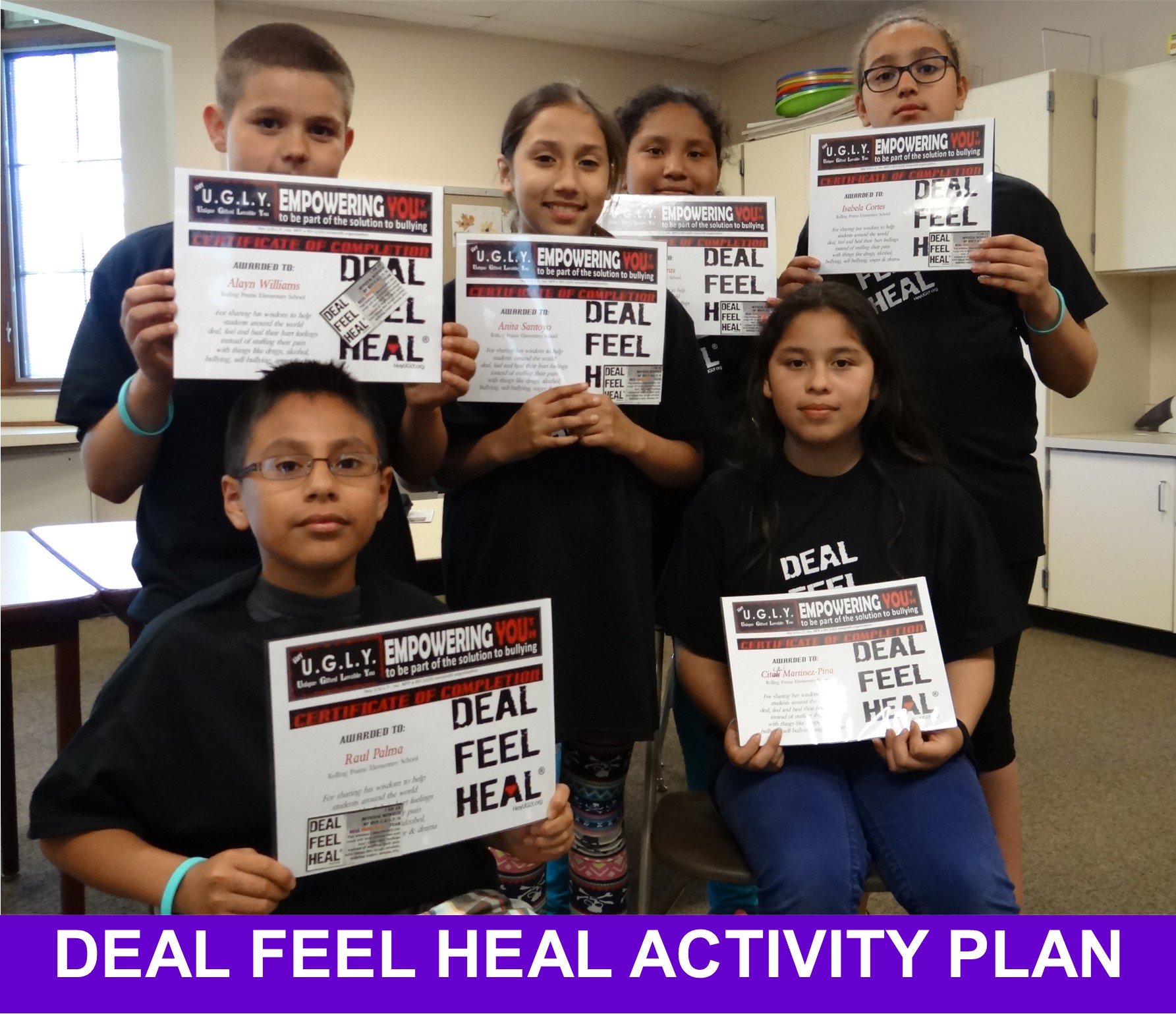
In classrooms across the country there are students who do not know how to deal with their emotional pain. Whether coming from homes where a cycle of domestic abuse exists and/or suffering the daily barrage of bullying, stress and pressure at school, these students are numbing their emotional pain with violence, food, alcohol, drugs, self-injury and, in some cases, ending their lives.
Hey U.G.L.Y.’s DEAL FEEL HEAL program invites students to be part of our movement to give young people, around the world, the tools to deal, then feel, then heal their emotional pain and become the YOU they want to be. This emotional learning/mental health and bullying/suicide/substance abuse prevention program not only helps the participants but also students across the globe as we post their wisdom for all to see. The first group of youth we worked with – elementary, middle and high school – in Indiana and Texas shared their wisdom in our book Deal Feel Heal which also recounts the personal journey of Hey U.G.L.Y.’s co-founder who finally healed her childhood pain and began consciously living life in the energies of gratitude and joy. Each time she was hit by her father she would say, “Didn’t Hurt.” She spent a majority of her life stuffing her pain which metastasized to her psyche and grew into low self-esteem, bullying and thoughts of taking her life. With the help of an inner-child worker she discovered she was not in touch with any of her feelings which is why she created the Deal Feel Heal playing cards which allow players to get in touch with their feelings by literally touching them. According to the National Institute of Health, “two-thirds of drug treatment patients report having been abused during childhood. Sexual, physical and emotional abuse and neglect all contribute to the overall outcome of drug abuse and addiction.”
A recent study by the Partnership for a Drug-Free America showed that 73 percent of teens report the number-one reason for using drugs is to deal with the pressures and stress of school. Peer pressure is another major influence on youth regarding drug and alcohol. A 2007 PATS Teens study reported 65 percent of teens say they use drugs to “feel cool.” Teens’ self-worth depends on the approval of others, and their desire for social acceptance can drive them to engage in destructive behaviors, even if they know it could harm them. The same study found that 65 percent of teens use drugs to “feel better about themselves.” Teens that have low self-esteem are more likely to seek acceptance from the wrong crowd by using drugs.
Bullied youth have decreased academic achievement, damaged social connections, and general feelings of depression and worthlessness. A 2010 National Institute of Health study reports that more than one-fifth (20.8 percent) of U. S. adolescents in school have reported being physically bullied at least once in the last two months, more than half (53.6 percent ) have been verbally bullied, 51.4 percent have felt socially bullied—that is, excluded or ostracized or otherwise hurt (www.ncbi.nlm.nih.gov/pubmed/19766941). Now electronic bullying on computers and cell phones has been shown to lead to even higher levels of depression than these older forms of aggression (http://www.nih.gov/news/health/sep2010/nichd-21.htm ). And bullies feel depressed, too. Bullying is associated with other problems such as substance abuse, obesity, and racism and youth suicide.
For more information call 219-814-4224 or email PreventBullyingNow@heyugly.org with Deal Feel Heal Program in the subject line. You can bring this powerful program to your school, church, group or home.
In classrooms across the country there are students who do not know how to deal with their emotional pain. Whether coming from homes where a cycle of domestic abuse exists and/or suffering the daily barrage of bullying, stress and pressure at school, these students are numbing their emotional pain with violence, food, alcohol, drugs, self-injury and, in some cases, ending their lives.
Hey U.G.L.Y.’s DEAL FEEL HEAL program invites students to be part of our movement to give young people, around the world, the tools to deal, then feel, then heal their emotional pain and become the YOU they want to be. This emotional learning/mental health program not only helps the participants but also students across the globe as we post their wisdom for all to see. The first group of youth we worked with – elementary, middle and high school – in Indiana and Texas shared their wisdom in our book Deal Feel Heal which also recounts the personal journey of Hey U.G.L.Y.’s co-founder who finally healed her childhood pain and began consciously living life in the energies of gratitude and joy. Each time she was hit by her father she would say, “Didn’t Hurt.” She spent over 35 years of her life stuffing her pain. With the help of an inner-child worker she discovered she was not in touch with any of her feelings which is why she created the Deal Feel Heal playing cards which allow players to get in touch with their feelings by literally touching them. According to the National Institute of Health, “two-thirds of drug treatment patients report having been abused during childhood. Sexual, physical and emotional abuse and neglect all contribute to the overall outcome of drug abuse and addiction.”
A recent study by the Partnership for a Drug-Free America showed that 73 percent of teens report the number-one reason for using drugs is to deal with the pressures and stress of school. Peer pressure is another major influence on youth regarding drug and alcohol. A 2007 PATS Teens study reported 65 percent of teens say they use drugs to “feel cool.” Teens’ self-worth depends on the approval of others, and their desire for social acceptance can drive them to engage in destructive behaviors, even if they know it could harm them. The same study found that 65 percent of teens use drugs to “feel better about themselves.” Teens that have low self-esteem are more likely to seek acceptance from the wrong crowd by using drugs.
Bullied youth have decreased academic achievement, damaged social connections, and general feelings of depression and worthlessness. A 2010 National Institute of Health study reports that more than one-fifth (20.8 percent) of U. S. adolescents in school have reported being physically bullied at least once in the last two months, more than half (53.6 percent ) have been verbally bullied, 51.4 percent have felt socially bullied—that is, excluded or ostracized or otherwise hurt (www.ncbi.nlm.nih.gov/pubmed/19766941). Now electronic bullying on computers and cell phones has been shown to lead to even higher levels of depression than these older forms of aggression (http://www.nih.gov/news/health/sep2010/nichd-21.htm ). And bullies feel depressed, too. Bullying is associated with other problems such as substance abuse, obesity, and racism and youth suicide.
For more information call 219-814-4224 or email PreventBullyingNow@heyugly.org with Deal Feel Heal Program in the subject line. You can bring this powerful program to your school, church, group or home.
